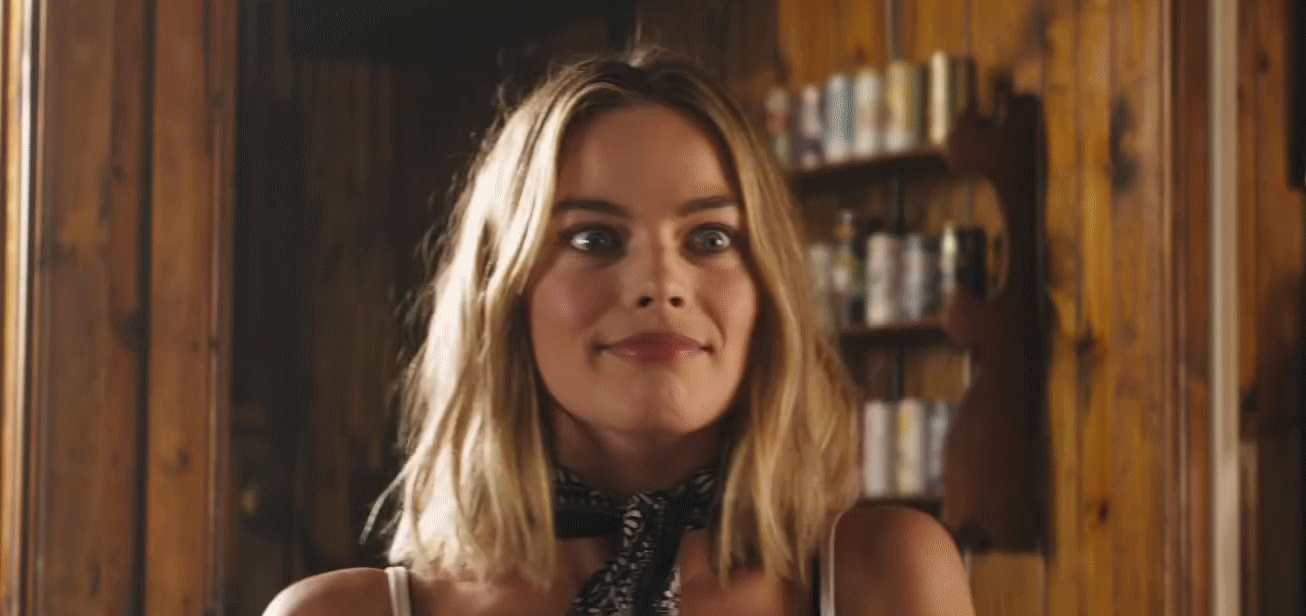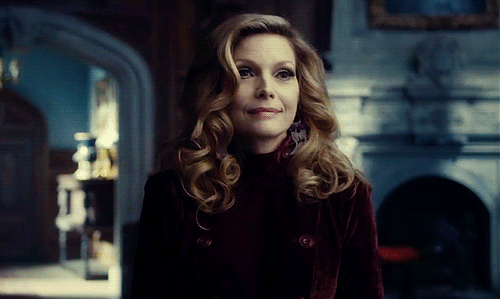My short answer to that headline? No. I'm not slighting Margot Robbie, though. I happen to think she's extremely talented, unfairly underrated, and a fine actress. It's just that, as we all know, there is only one Michelle Pfeiffer. Libby Gelman Waxner (aka Paul Rudnick) said it best:
Michelle Pfeiffer is what God had in mind for humanity before the blueprints got all smudged in the glove compartment.
Some Twitter reactionaries seemed to think Nylon meant that Robbie was usurping Pfeiffer. That's not the message I took from it, though. By "this generation" I think they mean the millennial generation. Robbie is a millennial, after all. Pfeiffer is technically a Boomer, but her birth year (1958) falls towards the tail end of the spectrum for that generation. Also, in both style and personality, Pfeiffer has always been far more closely aligned with Generation X—she's introspective, thoughtful, skeptical, and independent, to name just a few traits she shares with my middle child generation.
I suppose comparing Robbie to Pfeiffer is bound to incite some Twitter flaming, of course. Pfeiffer's experiencing a career resurgence, and finally seems to be receiving due praise for her sustained excellence, to which I always ask everyone—Where on earth have you been all these years??? So, for those of us who've followed Pfeiffer's career closely for so long, we're more than a little possessive and protective of her legacy. Thankfully, I think Nylon is just using Pfeiffer as shorthand for the (White) Gold Standard for actresses, and then to point out similarities between Robbie's early career and Pfeiffer's. Seems mostly fair to me.
Remember, Robbie's only been a big name for five years, but has already built a strong body of work in that short span, similar to what Pfeiffer did in her first five years in film. Robbie has a leg up on much of the competition with impressive work in The Wolf of Wall Street (2013) Suicide Squad (2016) and last year's I, Tonya, for which she received an Academy Award nomination for Best Actress. As good as Robbie has been though, Pfeiffer was even more stunning in her early work, turning in iconic performances in Grease 2 (1982), Scarface (1983), Ladyhawke (1985) and Into the Night (1985), to name a few. Then, over the next five years of her career, Pfeiffer positively knocked out the competition with next-level performances in The Witches of Eastwick (1987), Married to the Mob (1988), Dangerous Liaisons (1988), and The Fabulous Baker Boys (1989). Let's see if Robbie can continue to trend upward over the next five years.
Still, the comparisons aren't completely unfair, especially when you consider each actress's respective work in big-budget comic book movies, as the Nylon piece does. For me, this is the strongest part of the author's argument:
Now, Robbie and Pfeiffer are not the same type of actor. They do, however, possess a similar magnetism that, more often than not, steals the show. And no, it's not merely because of their appearance. There's an energy to both of them that's at once provocatively feline and sinister. They can go from coy and sweet to cutthroat in a blink of an eye. Had Suicide Squad come out in the '80s, you know Pfeiffer would have been cast as Harley Quinn the same way Robbie would have been cast as Catwoman in Batman Returns. The energy these two actors possess is intimidating, to say the least, and captivating to no end.
Yes, absolutely, they share a certain electricity, or charisma, in their performances. This makes them ideal choices to bring characters like Catwoman and Harley Quinn to life. In each film, Pfeiffer and Robbie completely steal the show, relegating nearly everyone else in the casts as secondary to their indelible performances. I could certainly see a young Pfeiffer absolutely nailing the role of Harley Quinn, just as I could see Robbie doing wonders with Catwoman today. Now, I don't think Robbie would outshine Pfeiffer as Catwoman—because no one can do that—but Pfeiffer certainly could be an even more amazing Harley Quinn than Robbie already is. Of course, I may be biased.
That said, I have been championing Robbie for a few years now. I think she's a spectacularly talented actress, yet one that's too often been dismissed as just another pretty face. If that sounds familiar, it's because it's the sort of unfair perception Pfeiffer has had to work against for most of her career. The notion that somehow because they possess great beauty—and in the cases of Pfeiffer and Robbie, an almost otherworldly beauty that stops traffic—they can't be top-level actors is utterly absurd. Pfeiffer has spent forty years disproving this bogus notion, and so far Robbie's on track to do much the same.
There's room enough in the world for both Michelle Pfeiffer and Margot Robbie to be excellent. For many of us, myself included, no one will ever compare to Pfeiffer's brilliance, yet watching Robbie build a similarly eclectic and impressive career is still much appreciated.
Obviously, #TeamMichelle all the way here, but I'm excited to see what Robbie has in store, and to see if she can prove people wrong, just as Pfeiffer's been doing over the course of her long and illustrious career. The Nylon pieces closes with an interesting proposal:
Now, who in Hollywood wants to greenlight a Stardust 2 starring the two of 'em?










Pfabulous. I really enjoyed your article and Hayden Mander's piece over at nylon.
ReplyDeleteI'll be honest I don't know much about Margot Robbie. I know who she is but haven't seen any of her films. Still I don't know why any Pfeiffer pfan would be inflamed that she might be a successor to Michelle. From what I've read it seems like they do share some similarities in personality and career choices. Bring on Stardust 2. You can never have too many talented and beautiful ladies in the same film.
Thank you, Paul! I haven't seen all of Robbie's work yet myself, but I will say this: she is indeed the best part of The Wolf of Wall Street, IMHO. Of course, you're speaking to a guy who didn't care for that film at all. I'm planning to see her Oscar-nominated turn in I, Tonya this week or next, hopefully, if I can snag it at the local library. And I agree with you wholeheartedly: there is more than enough room in the world for another great actress who just so happens to be a bombshell. And Robbie can grow into a great actress without having any impact on Michelle Pfeiffer's legacy - Pfeiffer is the one, the only, the best.
Delete